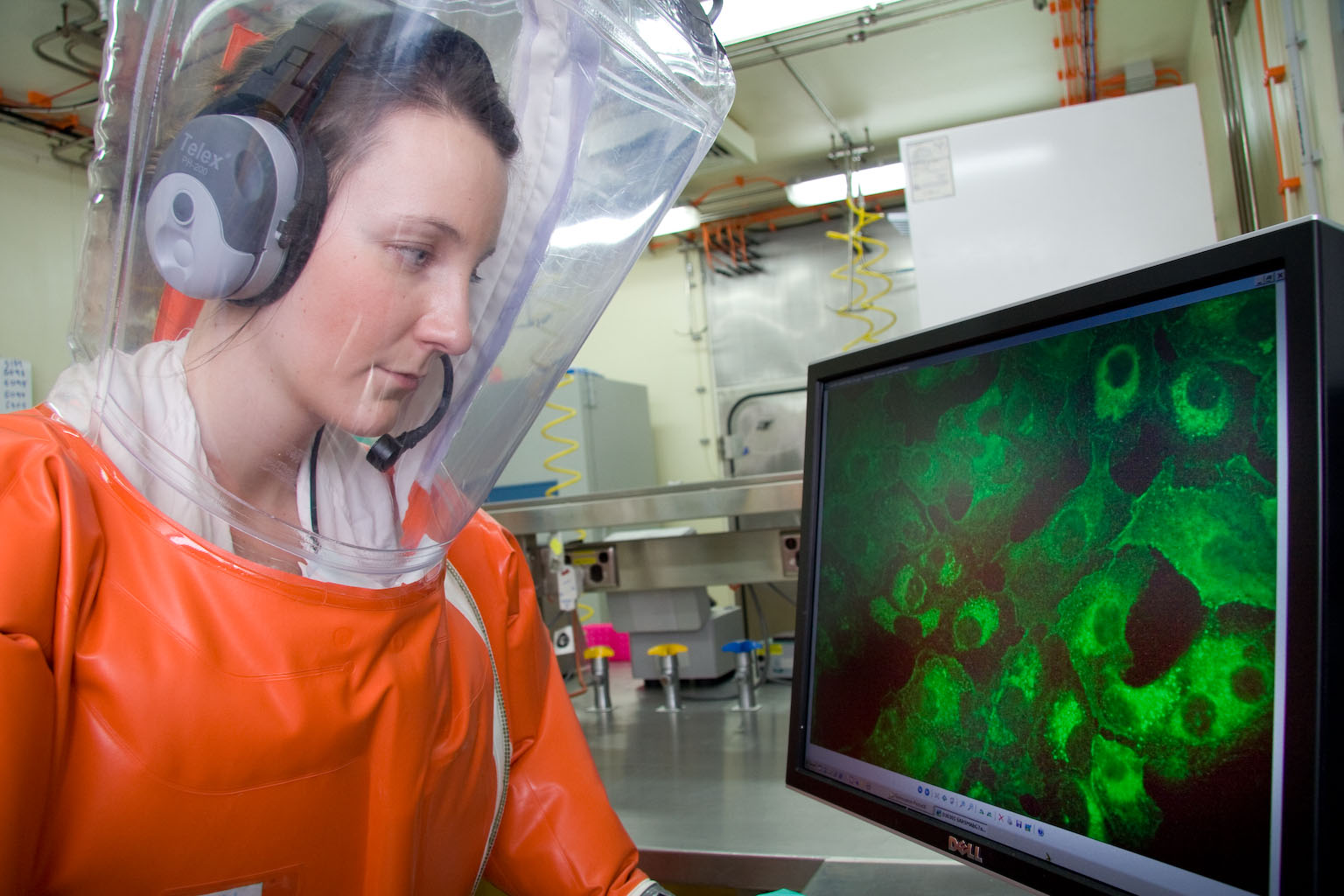Australian horse owners and the equine industry receive an important boost in their fight against the deadly Hendra virus today, with the introduction of Equivac® HeV vaccine.
The vaccine, available under permit from registered veterinarians, is for use only in horses and aims to protect the Australian equine population against this killer disease. With a high mortality rate, Hendra virus has claimed the lives of more than 60 horses, including nine deaths in 2012 alone.
The threat of Hendra virus extends well beyond horses with four out of the seven people infected with the virus dying as a result of the infection. With no known cure, the Equivac HeV vaccine is set to become the most effective defence against this disease.
'The vaccine is a major win for people working in veterinary practice, who are at great risk of Hendra infection,' Dr Ben Gardiner, President, Australian Veterinary Association (AVA) said. 'This vaccine significantly decreases the risk to horse owners, handlers and veterinarians.'
The Equivac HeV vaccine was developed in collaboration with four international organisations. In Australia, CSIRO’s Australian Animal Health Laboratory (AAHL) worked in close partnership with Pfizer Animal Health. Additionally, US organisations, the Uniformed Service University of the Health Sciences (USU) and the Henry M. Jackson Foundation for the Advancement of Military Medicine (HJF) have also contributed to the development of this important vaccine. Pfizer Animal Health was involved from early on in the process, contributing to formulation, industrialisation, production and distribution of the vaccine. “Our involvement in the collaboration to develop Equivac HeV speaks to our determination to support the veterinary community and equine industry with effective vaccines to aid in the control of potentially life-threatening diseases such as the Hendra virus,” said Mike van Blommestein, Division Director, Pfizer Animal Health Australia. Additionally, it has also managed the formal regulatory approval process including those safety and efficacy trials required by the Australian Pesticides and Veterinary Medicines Authority for the granting of permit approval, as well as fulfilling the requirements of the Australian Quarantine and Inspection Service. CSIRO has maintained a significant program of Hendra virus research since it was first identified and has contributed critical technical knowhow and advice on the virus to the partnership. CSIRO also provided the safe handling of Hendra virus and testing of the Equivac HeV at its high containment facility in Geelong, Victoria – the only laboratory in the world capable of such high-risk work. Leading the specialist team from CSIRO, Dr Deborah Middleton,a veterinary pathologist, has a deep understanding of the need for an equine vaccine to aid in the prevention of the spread of Hendra virus. 'As a veterinarian, I have seen firsthand how Hendra virus has created difficult working conditions for my colleagues and any Australian who works with horses,' Dr Middleton said. 'A horse vaccine is crucial to breaking the cycle of Hendra virus transmission from flying foxes to horses and then to people, as it can prevent both the horse developing the disease and passing it on. 'For the first time, we have a Hendra virus specific tool that provides vets with a greater level of safety when they come into contact with sick horses.' US partners, HJF and USU, also played an important role in the initial stages of the development of Equivac HeV vaccine. A research team at USU, led by Dr Christopher Broder, worked for more than a decade to find preventive treatments for both Hendra and Nipah virus infections. Contributing to this work, HJF provided intellectual property advice and guidance to Dr Broder’s team to ensure the Hendra virus vaccine moved from the military to the civilian world. Pfizer Animal Health is now working to supply Equivac HeV vaccine to those areas with the greatest need across Australia.
They will also oversee the training and accreditation of veterinarians working with the vaccine as well as the supply and maintenance of a national vaccine register for horses, requiring veterinarians to record details of a horse’s location and vaccination status. While the introduction of a vaccine represents a significant step in countering the Hendra virus, it is still important that veterinarians and those who work with horses take precautions to safeguard against infection. 'Although Equivac HeV will provide enormous reassurance for Australians in contact with horses, owners should still take caution around places flying foxes congregate. Anyone handling a sick horse should continue to take precautions,' Dr Gardiner added. 'Simple measures such as using personal protective equipment and clothing, quarantining sick horses from other animals and people and following good hygiene practices as a matter of routine, can greatly reduce the risk of the disease.' CSIRO has maintained a significant program of research on the deadly Hendra virus, since the virus was first identified in 1994. This work is part of CSIRO Biosecurity Flagship’s commitment to protecting the health of our animals and people from biosecurity disease threats. The Hendra virus horse vaccine project has received significant funding from State and Federal governments over the years. Most recently, in 2011, the Intergovernmental Hendra Virus Taskforce was formed and additional funding was provided through the National Hendra Virus Research Program to ensure critical timelines for vaccine development were maintained. Further information For further information, pre-recorded video footage or an interview, please contact: Emma Wilkins, CSIRO Biosecurity Flagship 0409 031 658 Katherine Barbeler, Weber Shandwick: 0439 941 632 For more information about the Equivac HeV vaccine, visit health4horses

Read more news@CSIRO posts about the Hendra Virus
